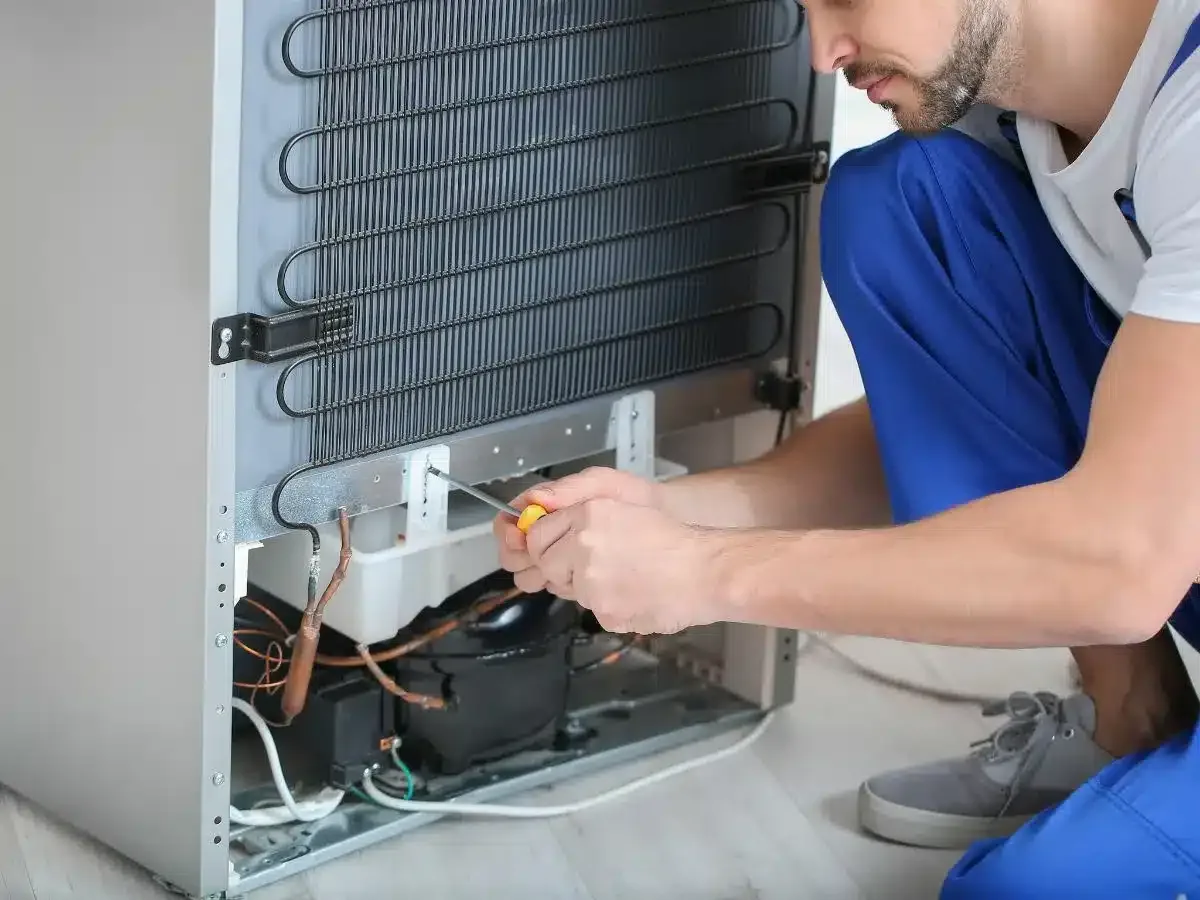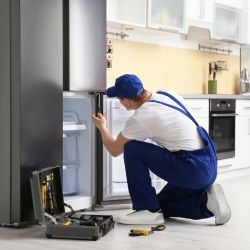
There’s no worse feeling than opening your refrigerator with the hopes of a cool drink or fresh snack, only to find it uncomfortably warm inside. It’s a major inconvenience that can lead to spoiled food and frustration. Before you panic, let’s explore the potential culprits behind this problem and how to fix them.
Common Causes of a Non-Cooling Refrigerator
Get in touch with us
- Thermostat Malfunction: Your thermostat is the heart of your refrigerator’s temperature regulation. If this component malfunctions, it won’t signal your cooling system effectively, leading to a warming fridge.
Evaporator Fan Motor Failure: The evaporator fan is crucial for circulating cold air throughout the fridge’s interior. If this motor fails, the cool air can’t reach all areas, causing poor cooling.
Condenser Coils are Dirty: Your refrigerator’s condenser coils act like a heat exchanger, releasing heat from the refrigerant. Dust and grime buildup on the coils can reduce their efficiency, hindering the cooling process.
Refrigerant Leak: Refrigerant is the lifeblood of your cooling system. If there’s a leak, the refrigerator loses its ability to cool properly.
Door Seal Issues: Gaskets around the door are vital for sealing in cold air and keeping warm air out. Worn or damaged seals can lead to a constant influx of warm air, making your refrigerator work harder and cool less effectively.
Troubleshooting
Before you call us try these steps
- Check the Thermostat Settings: Start with the basics! Sometimes the solution lies in ensuring your thermostat isn’t inadvertently set too high.
Inspect the Evaporator Fan Motor: Locate your evaporator fan (usually in the freezer compartment). See if the blades spin freely or if you hear any odd noises that might indicate a failing motor.
Clean the Condenser Coils: These coils are often underneath or behind the refrigerator. Unplug your fridge, gently clean the coils with a brush and vacuum, and restore power. Buildup on the coils can dramatically decrease cooling performance.
Look for Signs of a Refrigerant Leak: Refrigerant leaks can cause a telltale hissing sound or leave oily residue near the leak point. However, refrigerant leaks are best diagnosed and fixed by a technician.
Test the Door Seal: Slide a dollar bill halfway into the refrigerator door and close it. If you can pull the bill out easily, it might indicate a failing seal that needs replacem
When to Call a Professional
If the DIY tips above don’t solve your problem, it’s time to enlist professional help. Especially in the case of suspected refrigerant leaks or major component failures, a trained technician will diagnose and address the issue properly.
Preventative Maintenance Tips for Refrigerator Cooling
Extend your refrigerator’s lifespan with these proactive care tips:
Regularly Clean and Maintain the Refrigerator: Defrost your freezer if needed, wipe down spills quickly, and check gaskets for cracks or tears.
Avoid Overloading the Refrigerator: Overpacking your fridge makes the cooling system work overtime. Leave some space for proper air circulation.
Keep the Refrigerator in a Well-Ventilated Area: Don’t cram your fridge into a tight space. Leave some room around it to prevent hot air from getting trapped.
